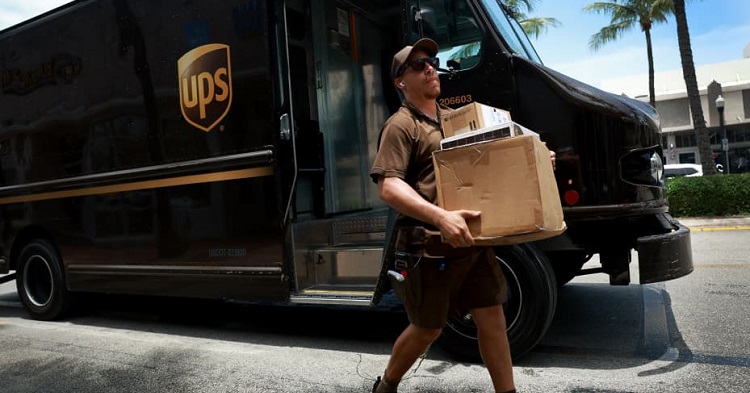In a strategic move to rein in expenses, United Parcel Service (UPS) has announced plans to slash its workforce by a substantial 12,000 positions, accompanied by a resolute directive for employees to return to the office five days a week. This resolute decision, led by UPS CEO Carol Tomé, is expected to save the delivery juggernaut an impressive $1 billion, marking a significant step towards a more efficient and financially resilient future.
The announcement comes on the heels of a challenging year for UPS, marked by a 31.8% drop in quarterly profit. The e-commerce sector, which has been the lifeblood of the shipping industry, experienced a slump, and the costs surged due to the new contract negotiated with the Teamsters union.
These cost-saving measures, which are estimated to affect roughly 14% of the 85,000 full- and part-time managers, are part of UPS’s strategy to right-size its global staffing. This approach is expected to be implemented gradually over the next several months, with the company pledging unwavering support for affected employees in the form of severance packages and outplacement assistance.

While the specific positions affected remain unclear, UPS is resolute in its commitment to streamlining operations and ensuring the company’s continued growth and success. The significant reduction in headcount is expected to bolster UPS’s financial position and enhance its competitiveness in a rapidly evolving market.
In a pivotal move, UPS will be discontinuing its hybrid work schedule, which allowed employees to work remotely three days a week, starting this March. Instead, all employees will be required to work in the office full-time. Carol Tomé emphasized this decision as essential for aligning resources with the company’s core objectives, stating, “We are going to fit our organization to our strategy and align our resources against what’s wildly important.”
Despite the challenges faced in 2023, UPS remains resolute in its commitment to long-term growth and success. While revenues for the fourth quarter of 2023 fell short of analysts’ expectations at $24.9 billion, the company is taking these measures to ensure a stronger and more prosperous future.
For the entire fiscal year of 2023, UPS reported revenue of $91 billion, representing a 9.3% decrease from the previous year. Looking ahead to 2024, UPS anticipates additional challenges stemming from its five-year labor agreement with the Teamsters, which took effect in August. This agreement includes a substantial 48% wage increase for part-time workers over the contract’s duration, putting further pressure on the company’s bottom line.
Despite these challenges, UPS is charting a course for the future and is projecting sales between $92 billion and $94.5 billion for the year 2024, even though it falls slightly below the midpoint of analysts’ estimates. The financial markets reacted swiftly to the news, with UPS’s share price experiencing an 8% decline, closing at $144.91 following the earnings report.
CEO Carol Tomé has signaled her intention to outline the company’s long-term goals in an investor meeting scheduled for March, indicating UPS’s commitment to transparency and strategic planning as it navigates these challenges.

Furthermore, UPS is exploring the possibility of selling its Coyote truck brokerage business. This decision is driven by changing market conditions and declining sales, largely attributed to a freight recession marked by declining rates and overcapacity.
